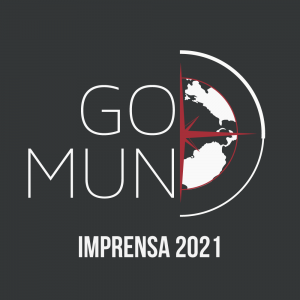During the UNSC sessions of the day, countries were surprised by the news of a terrorist attack. The result was the expulsion of the press.
Natan Magri
It is not new that problems often arise between governments and the press. Whether due to public investigations or criticism of the media’s sensationalism, tough exchanges are common. Even so, the New York Times was surprised by the attitude, in this afternoon, when after reporting a terrorist attack in the Philippines, the entire international media was expelled from the United Nations Security Council (UNSC), incapacitating the journalist coverage of the debates during the session.
The terrorist attack in question was a bombing in a refugee camp in the Philippines. The attack took place in the region of Mindanao, a large Islamic territory. The main group identified as responsible for the massacre is Bangsamoro Islamic Freedom Fighters (BIFF), a group associated with the Islamic State (IS). There is also suspicion of the participation of groups such as the Moro Islamic Liberation Front (MILF) and the Moto National Liberation Front (MNLF).
In a committee of 20 countries, there was not a single protest against the motion to withdraw from the press. This motion was presented by the diplomat João Pedro Falcão de Oliveira Lucena, representative of France – a democratic country with a history of free, independent, and critical press, such as the Charlie Hebdo paper. Not even the United States of America, represented by Lais Cavallin Rodrigues, rejected the idea. During a press conference, she justified the country’s position, stating that because the conversation was delicate, it was necessary to build consensus among the countries, as this guarantees an in-depth discussion of the crisis, in addition to its possible resolutions. For her, closing the board was the right decision.
Despite the discussions, responses to the terrorist attack in the Philippines followed the pattern of diplomacy. Countries such as the United States, Russia, China, and the Philippines sent press releases saying they opposed the attacks and that they would continue investigations in search of the culprits, in addition to offering humanitarian aid to the affected refugees.
One fact that stands out in the tragic event was the use of illegal weapons and ammunition. Illegal weapons from the National Forces of the Philippines, Russia, China, the USA, and Saudi Arabia have been identified. At a press conference, the representative of China, Thaís Costa Vianna Peres, was asked about the presence of illegal Chinese weapons in the attack. China, for about a decade, has been increasing its exports of firearms, and neighboring countries are buyers. However, the representative does not believe that there is a connection between the legal and supervised sale of arms with the criminal and illegal use of the same Chinese items. For her, the criminal use of weapons is a problem that China is willing to help combat, but there is no reason to blame the government since it does not sell arms to terrorist groups, but rather to nations.
Other topics were also discussed before and after the news about the terrorist attack on refugees in the Philippines. The USA was present at the discussions addressing the violation of human rights in Myanmar. Throughout the day, a consensus emerged, and the Americans agreed to revise their sanctions (there is no specificity) on Myanmar, as long as the nation keeps promises to a cease-fire and that the police force used against the population will be diminished.
China also participated in the debate. Together with Russia, the country assisted in the drafting of the official document on the Global Humanitarian Fund, a partnership between countries that can benefit Chinese influence and the Chinese vaccine. This was a proposal presented by Russia and agreed by the UNSC members. The international fund will finance the construction of the International Vaccine Factory, now with a defined location: Malaysia.

